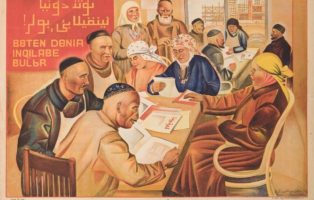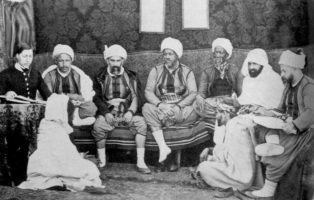Deconstructing Shari‘a Justice in the Russian North Caucasus, 1860s-1920s: Practices, Networks, Actors from the Post-Colonial Prospective
Research Question
I question the general stereotypes of colonial and post-Soviet approaches, especially with regard to the place of Islam in 19th-century Dagestan. How do the Soviet and French, British and Dutch practices in the Muslim colonies differ or converge? What did Russian historiography make out of the experience of other colonial empires? Did European Orientalists in colonies interact?
Project Description
This project will question the hegemonic frameworks of interpretation: the collision between Shari‘a, Islamic and non-Islamic customary law, and the preposition that Russian colonial officers and Muslim legal practitioners were ignorant of what happened in other parts of the colonized world. How do the Soviet and French, British and Dutch practices in the Muslim colonies differ or converge? How can epistemology of Caucasus be compared with the historiography on British India, French Algeria, and the Dutch East Indies? What did colonial historiography make out of the experience of other colonial empires? The study will be mostly based on practice and network analysis. My focus will be on issues of Islamic law (shari‘a) and customary law (‘adat). Their dichotomy is an issue that one encounters in colonial reports (and also in Islamic accounts, including from the respective anti-colonial jihad movements) from across the globe in the 19th and 20th centuries.
Selected Publications
Die Welt des Islams, 2010, vol. 50, nos. 3-4, pp. 477-502;
The Cambridge History of Russia, Cambridge: Cambridge University Press, vol. II, pp. 202-223.



